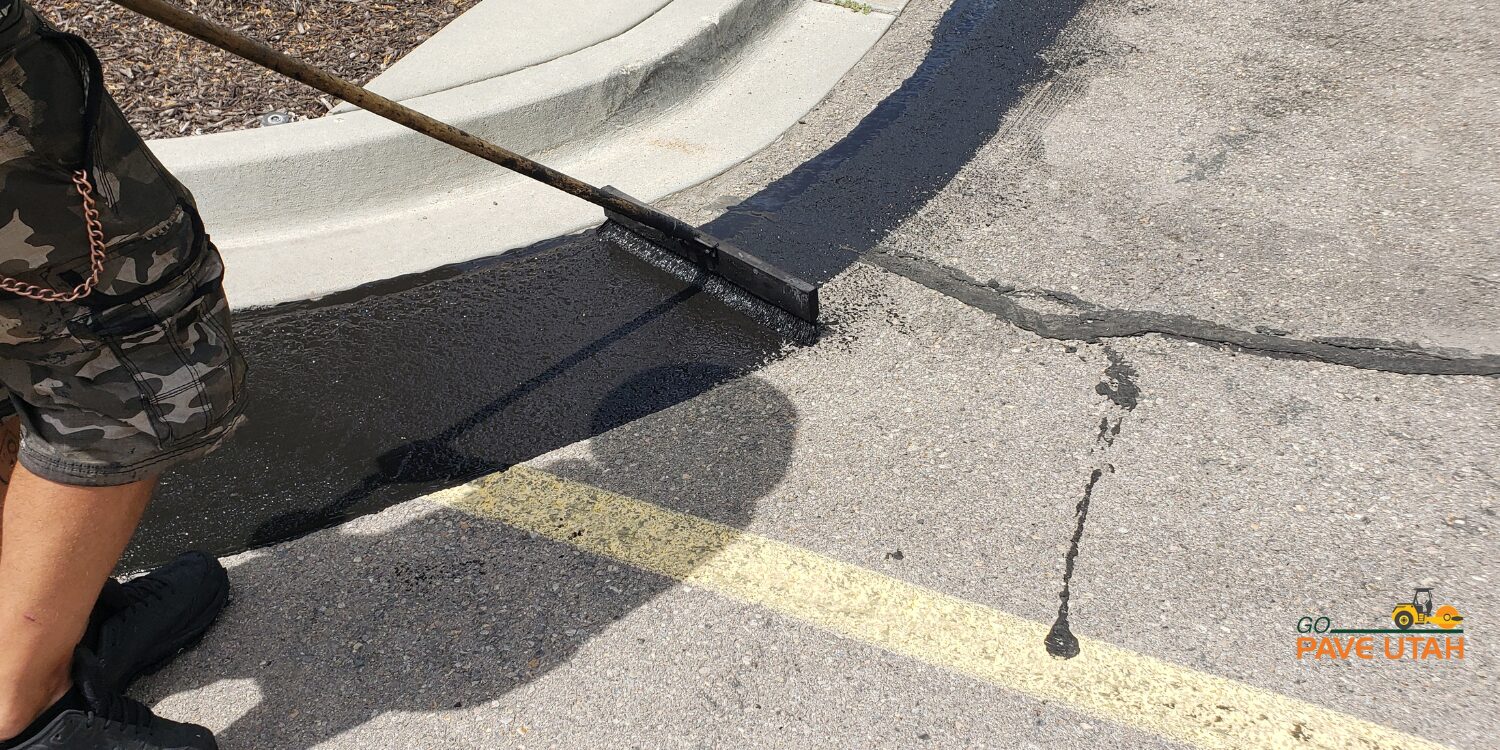Elevate Commercial Charm: Hot Mix Asphalt Sealing for Angled Parking Lots
Wiki Article
Warm Mix Asphalt: A Lasting Option for Pavement
Hot Mix Asphalt (HMA) has actually become a leading lasting selection for pavement remedies, supplying a myriad of ecological advantages and ingenious technologies. Its capability to lower and reuse products energy consumption offers an engaging situation for its adoption in road building and construction projects. Moreover, the lasting efficiency and toughness of HMA make it a favored alternative for infrastructure development. As the need for environmentally friendly construction techniques grows, checking out the subtleties of HMA's sustainability can give beneficial understandings into the future of sidewalk options.Ecological Benefits of Hot Mix Asphalt

Additionally, Warm Mix Asphalt aids to mitigate metropolitan heat island impacts. Its dark shade absorbs sunlight, lowering the amount of warmth reflected back right into the environment compared to lighter-colored pavements. This can decrease ambient temperature levels in metropolitan areas, reducing the demand for a/c and eventually minimizing power consumption.
Furthermore, Warm Mix Asphalt adds to improved stormwater management. Its porous nature enables water to recharge and infiltrate the pavement groundwater supplies, decreasing runoff and the threat of flooding. These ecological advantages make Warm Mix Asphalt a lasting selection for paving freeways and roadways.
Power Performance in HMA Production
Is energy performance an essential aspect in the manufacturing of Warm Mix Asphalt (HMA)? Power plays a substantial role in the production of HMA, impacting both expense and ecological sustainability. One essential facet of energy efficiency in HMA manufacturing is the use of cozy mix asphalt (WMA) modern technologies.Moreover, developments in plant technologies have caused more energy-efficient HMA manufacturing processes. Modern plants are designed with functions like recycled asphalt pavement (RAP) handling capacities, effective burner systems, and enhanced insulation, all contributing to power financial savings. By enhancing energy use in HMA manufacturing, the industry can minimize its carbon impact while keeping high-quality pavement materials. Power performance is, as a result, a critical factor to consider in ensuring the sustainability of Hot Mix Asphalt production.
Recyclability of Warm Mix Asphalt
The recyclability of Hot Mix Asphalt (HMA) is an essential aspect of its sustainability and long-term ecological effect. HMA is among one of the most recycled materials in the USA, with over 100 million bunches of redeemed asphalt sidewalk (RAP) being reused each year in brand-new sidewalk building and construction. Recycling HMA offers a number of ecological advantages, such as decreasing the need for virgin materials, reducing energy consumption during manufacturing, and reducing the amount of waste sent to land fills.The procedure of reusing HMA entails crushing the existing sidewalk, squashing it into smaller items, and blending it with brand-new aggregate and asphalt binder to produce a recycled mix. This recycled mix can commonly perform as well as and even much better than standard HMA, while calling for fewer resources and producing lower greenhouse gas emissions. By incorporating RAP right into brand-new sidewalk projects, road agencies can preserve natural resources, decrease expenses, and minimize the ecological impact of roadway construction and upkeep activities. In general, the recyclability of HMA plays a significant duty in advertising sustainable techniques within the sidewalk market.

Long-Term Efficiency of HMA
Asphalt sidewalks show durability and durability over an extended duration, mirroring the long-lasting efficiency of Hot Mix Asphalt (HMA) In addition, improvements in HMA modern technology, such as the use of polymer-modified binders and cozy mix asphalt, have actually further enhanced the sturdiness and long life of HMA pavements. By focusing on top quality building and upkeep techniques, HMA continues to verify itself as a lasting and economical remedy for long-lasting pavement framework.
HMA: Toughness and Sustainability
Demonstrating both resilience and sustainability, Warm Mix Asphalt (HMA) has come to be a foundation in the construction of durable pavement frameworks - regrading. HMA's durability originates from its capacity to endure hefty loads, rough weather problems, and high web traffic quantities, making it a trustworthy choice for roads, freeways, and airport paths. The composition of HMA, which commonly includes accumulations, binder, and filler, plays an essential function in boosting its longevity and resistance to tear and wear
Additionally, HMA's sustainability lies in its recyclability and energy-efficient additional hints production process. The ability to recycle reclaimed asphalt pavement (RAP) in new HMA combinations reduces the demand for virgin materials and lessens the ecological impact of pavement building and upkeep. In addition, the energy efficiency of creating HMA depends on its reduced blending temperature levels compared to other pavement materials, causing lowered power intake and greenhouse gas emissions.
Conclusion
In conclusion, warm mix asphalt (HMA) provides a lasting remedy for sidewalk with its environmentally friendly features. HMA's recyclability, energy efficiency in production, and long-term durability make it an more tips here eco-friendly selection for road construction.
HMA is one of the most recycled products in the United States, with over 100 million bunches of reclaimed asphalt pavement (RAP) being recycled every year in new sidewalk building and construction.The process of reusing HMA entails milling the existing sidewalk, crushing it into smaller sized items, and mixing it with brand-new accumulation and asphalt binder to create a recycled mix.Asphalt sidewalks show resilience and strength over a prolonged duration, web reflecting the lasting efficiency of Hot Mix Asphalt (HMA) In addition, developments in HMA modern technology, such as the use of polymer-modified binders and cozy mix asphalt, have better improved the resilience and long life of HMA pavements. The capability to recycle reclaimed asphalt pavement (RAP) in brand-new HMA blends reduces the demand for virgin products and minimizes the environmental influence of pavement building and construction and maintenance.
Report this wiki page